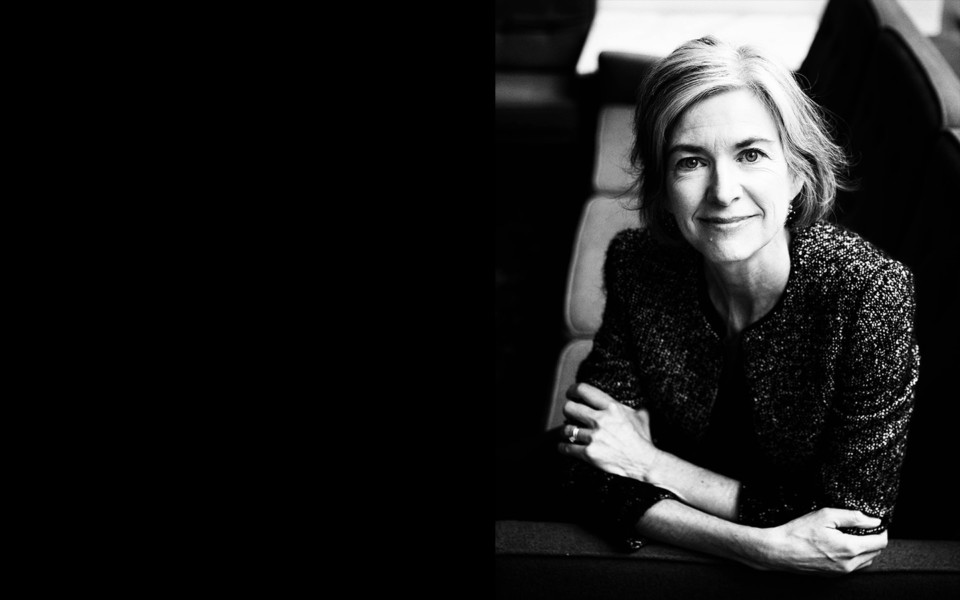‘The Joy of the Discovery’: An Interview with Jennifer Doudna
In August 2012, University of California, Berkeley biochemist Jennifer Doudna and colleagues published an article in the journal Science titled “A Programmable Dual-RNA—Guided DNA Endonuclease in Adaptive Bacterial Immunity.” Though the paper’s title was dry, its impact was revolutionary. In it, Doudna announced that her research group had discovered a simple method for editing genes. An enzyme found in bacteria known as CRISPR–Cas9 could be programmed, she reported, to search out and destroy specific genes.
“Our study reveals a family of endonucleases that use dual-RNAs for site-specific DNA cleavage and highlights the potential to exploit the system for RNA-programmable genome editing,” she and her colleagues reported. This—the most significant biological discovery since the double helix—changed everything.
It certainly changed everything for Jennifer Doudna. Since 2012, she has received just about every significant science award short of a Nobel prize: a Kavli, a Gruber, the Japan prize, and a Howard Hughes Medical Institute investigator award. On the darker side, the researcher also found herself embroiled in a four-year long patent dispute. At stake are tens of millions of dollars in licensing fees for CRISPR–Cas9.
The acrimony surrounding that dispute, however, seemed like a distant battle on a recent evening at New York’s Rockefeller University. Doudna, who is fifty-four, had flown in from California to receive another honor. This time, it was the Pearl Meister Greengard Prize, established by Nobel Laureate Paul Greengard and his wife, the artist Ursula von Rydingsvard, to give recognition to women scientists. (The prize is named for Dr. Greengard’s mother, who died giving birth to him.)
We spoke for two hours before the award ceremony. “That there even is a prize like this one,” Doudna said, “is a sign that people are really beginning to value the contributions of women to science.” An edited and condensed version of the interview follows.


